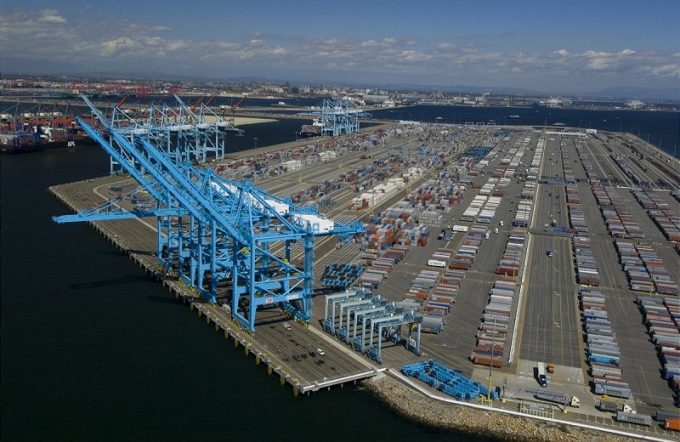Strike paralysing Finnish ports extended after talks collapse
The two-week strike by Finnish transport workers that has effectively shut down the country’s ports ...

Container terminals at the port complex of Los Angeles and Long Beach reopened on Friday evening, after a 24-hour work stoppage, but there is still no contract negotiation breakthrough.
Hopes of a resolution to the impasse in talks between the International Longshore and Warehouse Union (ILWU) and the Pacific Maritime Organisation (PMA) have receded further, suggesting the leakage of cargo flows from the premier US gateway complex will continue.
Work ground to a halt at the start of the late shift on Thursday, as not enough dock workers reported for duty. And the paralysis continued on Friday, as not enough workers arrived at the start of the morning shift. At Long Beach, four of its six container terminals were closed, while at LA, all seven box facilities were down.
The PMA accused the union of withholding labour in a concerted action to “effectively shut down the ports of Los Angeles and Long Beach”. The union refuted this, arguing that thousands of its members were attending the monthly membership meeting on Thursday, which saw the swearing-in of incoming president Gary Herrera. Turnout on Friday morning was low as workers were observing the Good Friday holiday, it added.
One observer said that actions taken during contract negotiations were often not declared as measures related to the talks.
Tensions have been visibly simmering in the west coast contract talks, which have dragged on since the old contract expired at the end of July. In March, operations ground to a halt at LA for one hour as port workers all took their lunch break at the same time, instead of staggering their breaks.
However, due to low traffic volumes, the impact of last week’s stoppage was negligible. According to one report, one container vessel was delayed for berthing.
But concerns over lasting repercussions of the continuing impasse have increased. The PMA has reiterated warnings that the west coast stands to lose traffic as hopes for a settlement of the contract talks wane.
“These actions undermine confidence in west cost ports and threaten to further accelerate the diversion of discretionary cargo to Atlantic and Gulf coast ports,” it said.
The US National Retail Federation (NRF) has repeated its call on the federal government to intervene and bring the negotiations to a speedy resolution.
David French, SVP of government relations said: “We again call on the administration to engage and prevent any further disruption to port operations and cargo fluidity.”
If anything, prospects of a resolution receded further on Friday, after the National Labor Relations Board (NLRB) ruled against ILWU claims that it was entitled to cover some 25 port mechanics jobs, performing shore-to-ship power work, at the port of Seattle in a turf war with a rival union, the International Association of Machinists and Aerospace Workers.
The issue paralysed ILWU-PMA contract talks for months, before the two sides set the matter aside to discuss other issues. But it remains a potent road block for the negotiations. According to one source, the ILWU has argued that it agreed in 2008 not to oppose individual terminal operators’ experiments with automation in a quid pro quo that employers would assign jobs involved in future jurisdictional disputes to the ILWU.
Immediately after the NLRB ruling, the union declared that it would appeal the verdict. The legal wrangle could continue for a year or two.
Comment on this article